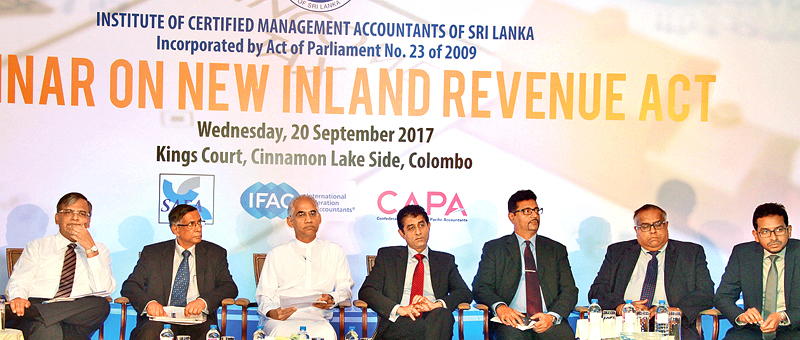The new Inland Revenue Act hopes to address some of the many tax issues faced by the general public, private and corporate companies in Sri Lanka said, State Minister of Finance Eran Wickramaratne.
Speaking at the seminar on the new Inland Revenue Act, organized by the Institute of Certified Management Accountants of Sri Lanka yesterday, he said that the government provides tax concessions of 1.6% of GDP to investors looking to start businesses in Sri Lanka.
The State Minister also pointed out that the Northern parts of Sri Lanka are avoided by investors because of high risk complications. He advised investors to take the risk and invest in the Northern parts of the country.
Wickramaratne said that the government aims to lower the budget deficit to 4.5% of GDP by 2018. He also said that the new Inland Revenue Act will bring stability to the economic sphere of Sri Lanka, while avoiding sovereign risk and improving national security.
The Minister said that Sri Lanka’s tax revenue had drastically dropped recently to 12% of GDP from the per capita income level of 18% of GDP.
Minister Wickramaratne said that the government is working on making an online feature where investors and members of the corporate sector can find out about the three relevant governmental departments that collect the revenue of the government.
“This Inland Revenue Act will also move away from the idea and concept of tax exemptions, but it will award tax exemptions to those who actively contribute to the national economy,” said the Minister. “This will not only help to provide a simplified process, but would also stop ‘revenue leakages’ in revenue collection.
He said government revenue has to increase because it is pivotal to maintain the territorial integrity of Sri Lanka, maintenance of armed forces, to maintain law and order and to answer the basic needs of the public, such as health and education.
The Minister said the objectives of the new Inland Revenue Act is to “create a simpler tax structure and to reduce the discretion that was there in the political authority.”



There is 1 Comment
[email protected]
Add new comment